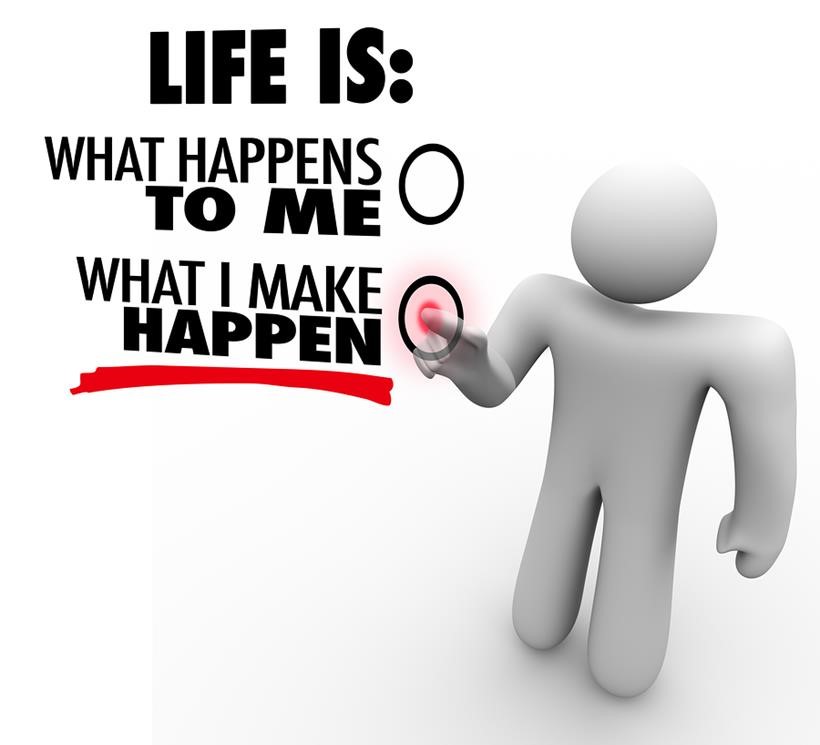
My mother-in-law passed away recently. It was, and is, a sad event. As one might suspect, the event caused, in amongst the angst of losing a loved one, some soul searching about their life and reflecting on that soul searching in assessing our own lives.
My reflections of my mother-in-law were of a loving and caring woman who nearly always put herself last, in favour of caring for and promoting the interests of people she loved, especially her three daughters and, in some cases, people she did not even know. Every now and then though, we would see what she really felt and thought. We would see her strong stances on issues bubble to the surface and, when provided with an environment where she felt safe, we would see her mischievous, playful side on full display.
It seemed though, that we only saw glimpses of whom she was and even rarer glimpses of who she could be. Her personality restrained her and her upbringing constrained her in a way that caused her to be passive, and yet this passionate, assertive person lurked beneath when it was given its moment to shine.
We saw who she could be but do wonder, if given a different environment with different role models and with support and encouragement, who could she have been.
We all face barriers to our development as people. The barriers we face in our general life and in our work life often conflate, reinforcing one another. Many people are happy to live their lives through other people; family, friends and loved ones, and feel no need to overcome these personal barriers. However, overcoming these barriers is important if we want to have a sense of fulfilment borne of our own actions during our lifetime; to have a sense of ‘Who can I become?’
The psychological barriers to personal development are manyfold and I’m sure could stretch to a hundred pages or more. These are two that I have observed, along with what people have done to overcome them.
Fear
Fear comes in two major contexts. Fear of the new and the fear of letting go. When both are present, fear becomes a major stumbling block to personal development.
Fear of the new in our lives may stem from being afraid of situations including, but not limited to;
- Suffering rejection by people or experiencing rejection in a new environment
- Failing to master new skills or language or think through new issues successfully or just simply adapt to new ways of working
- Not fitting in to new culture
- Having insufficient power to influence others.
Fear of letting go is an under-recognised barrier to change. Fears may stem from situations which include, but are not limited to:
- Reduced power in a job role
- Compromised sense of self-worth in their work or personal life
- Loss of affiliation with loved ones and friends and colleagues
- Loss of affiliation with a “good cause” which bestows an improved sense of self-worth
- Inability to dominate ideas in a new environment.
Overcoming fear of the new
Personal circumstance and experiences often dictate what works for people in overcoming the fear of doing something new.
A frame of reference from the past that demonstrates that we have overcome the fears before, even if in a different context, helps us overcome new fears. Most people have had to experience something radically new at some time in their life, and survived it. Examples which easily come to mind are moving house, city or country, changing jobs and having children. If we use that experience to determine the concepts and principle of how we coped, we can transfer that to our new experience. For example, to overcome the tiredness we feel with a newborn and not-so-newborn child, many of us sought help from relatives and friends in terms of practical help and advice. If we seek practical help and advice from people we trust, we can begin to overcome the fear of the new.
Often, it is a lack of skill or knowledge that defeats our ability to bury our fear of the new. Anyone who has changed country, however, is likely to have sought out a professional or amateur person to teach them the new language and/or culture before or after arrival in a new country. Enthusiastically taking on training of new skills and knowledge, and even attitude, can be a great deterrent to the fear of something new.
Overcoming fear of letting go
The fear of letting go comes from what we lose personally. That loss may be power and influence, affiliation with others, or control.
Getting correct information and ensuring we have a good understanding of the intention of the change and how it will impact us directly is the key here. Most of us can cope over time with change. What we struggle with is continued ambiguity. People who listen to rumours and don’t check their facts have the hardest time coping. Ask your supervisor/manager/friend/relative any question which is causing you doubts. Persist until you find an answer.
If the change is significant, it is also important that we understand that it acceptable for us to grieve about our perceived loss. Use the people who know us well and talk to them about the change. Even having a whinge session is not a bad thing, especially if, at the end, we can draw a line under the past and decide to get on with our lives. Even if this means forgiving past perceived wrongs, and completing unfinished business with people with whom we have unresolved issues.
Self-Worth
Feelings which are associated with low levels of self-worth cripple us all when they strike. They prevent us from exploring and asserting what we want and, in many cases, adequately sharing our feelings in support of others. For us to develop, it is important to find what creates and builds our sense of self-worth. This may come in the form of the work we do, the hobbies we have, the things we read and watch and the friends and acquaintances we choose to keep.
Overcoming a low sense of self-worth
Analyse your true skills and knowledge. Analyse your passion. Try to find things which intersect your skills and knowledge and passion, to do more frequently. If you are in a role and/or have a home life where none of your passions match your skills and knowledge, then acquire the skills and knowledge to indulge your passion rather than continue with something that, whilst exercising your skills and knowledge, holds no real joy for you.
Trust your feelings. If demands are made on you and you do not feel comfortable, respond in a way which is true to your feelings. When you do this, people are then able to respond further, knowing exactly how you feel. They then have to make an effort to take into account your feelings if they truly value us as a person. If you let others make decisions for you, and are continually mute in your response, your self-worth declines markedly. Then suddenly, if the people who make decisions for you disappear from your life, you are left alone and indecisive. If you are true to your feelings and make decisions for yourself, this is much less likely to happen.
Making your self-worth conditional on other people means you end up following the lead of others and not having a compass of your own to guide you. Many people live this way, including making such choices as studies, career, where to live, and how many children to have, all based on expectations from parents, spouses, friends, and the media, and mostly because they are afraid of standing up for their own preferences and respecting their self-worth. Look for other people with a high degree of self-worth and seek to use them or mentors or emulate their approach to making decisions, not their decisions.
Catch yourself when you are blaming others for your misfortune. Take responsibility for your own position. Take a leaf out of Covey’s book* and determine what is in your control and out of your control. Focus your emotional energy on what is in your control. At a minimum you are in control of your attitude, your reactions to people’s actions and your sense of self-worth. Persevere and think about “succeeding despite”, rather than “failing because”.
Look for opportunities to succeed rather than setting yourself up for failure. It is fine to look at the big picture, but each big picture starts with a small step. Determine the first few small steps and focus on them first, only occasionally lifting your head to remind yourself of the big picture. Budget your time and money to achieve those small steps.
Live in the present, competing only with yourself. The past has its lessons from which you’ve learned, but it’s long gone, so leave it behind you. Try to keep a notebook of your achievements. If you are starting to doubt your ability to achieve, sit down and read where you have come from. It is always surprising to see the progress made. It also gives us hope for the future changes we need to make. We do not have to be better than anyone else, only better than we once were.
Conclusion
My mother-in-law was a loving woman who, whilst not being resentful in any way with the selfless life she led, did yearn for more. She took up piano lessons in her early fifties after ensuring all of her children could play, she took up Japanese lessons in her forties and she pushed her somewhat reluctant husband into the thrills and learning experiences of international travel. She wanted more than she had. But she was unable, most of the time, to crash through the barriers of self-doubt and a historically strong sense of her self-worth to truly become the woman she could have been, with a higher level of self-belief and a lower level of angst about changing the status quo.
What is holding you back from answering the question”Who can I become?” affirmatively?
Bibliography
Covey, S. (n.d.). 7 Habits of Highly Effective People.


